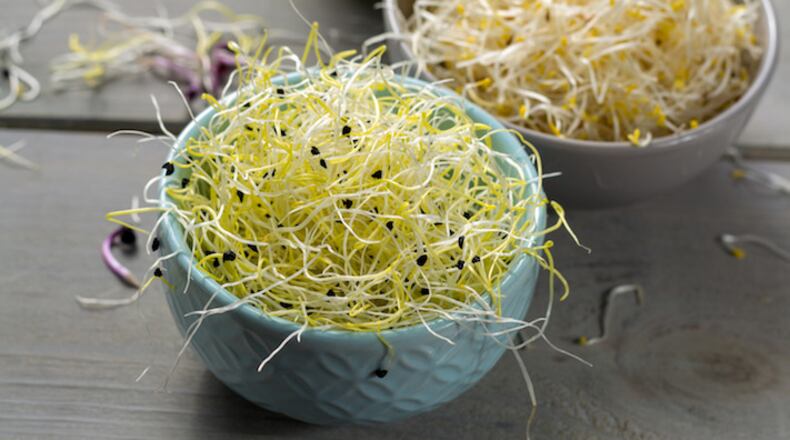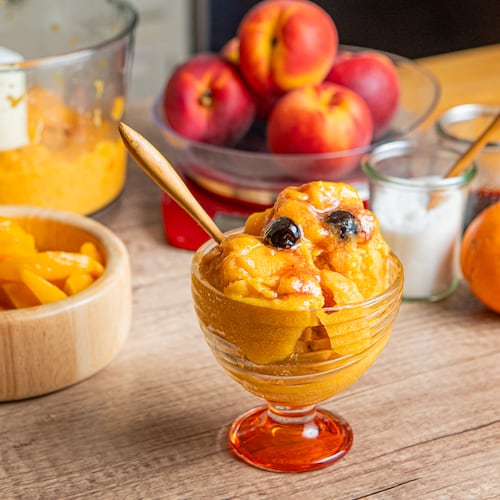When the pre-cut melon salmonella outbreak hit earlier this month, anybody who has had more than a few conversations with food safety attorney Bill Marler could hear his "I told you so."
Pre-cut fruit is on the list of foods avoided by Marler, one of the two name partners in Marler Clark, which claims to be the nation's only exclusively food-borne illness law firm.
In 25 years as a food safety attorney, Marler's seen how the sausage — and soup, salad, steak, etc. — is made and what happens when things go wrong (many Marler Clark clients' cases involved hospitalization or death from food-borne illness).
Upon request, Marler recently emailed the Miami Herald the list of foods you won't see on his table.
— Unpasteurized milk or juice, also called "raw milk" and "raw juice." "Raw milk directly from a cow can be infected with all types of bacteria," Marler said. "Some argue that milk loses nutrients during pasteurization, but this is patently false. Skipping pasteurization means an increased risk of contamination by bacteria, viruses, and parasites."
— Raw sprouts. "Raw sprouts are dangerous because of their growing process. The seeds are sprouted in standing water that can grow bacteria. There have been too many outbreaks to not pay attention to the risk of sprout contamination." Seven outbreaks — four salmonella, two E. coli, one listeria — since 2014 trace back to sprouts, according to the Centers for Disease Control.
— Meat that isn't well done. Steak connoisseurs will wail. Chefs might rend garments. But Marler got his start in the food safety niche working for plaintiffs whose children died in the 1993 Jack in the Box E. coli outbreak. So he has no problem insisting, "Meat needs to be cooked to 160 degrees throughout to kill bacteria that could cause E. coli or salmonella."
— Pre-cut vegetables. This includes packaged salads. The outbreak record speaks for itself: 79 outbreaks in the last 23 years, the most recent being this spring's romaine lettuce E. coli outbreak that sickened 197 people and killed five. That was the biggest E. coli outbreak of any kind in the United States since the 2006 leafy spinach outbreak that infected 199. In answering why romaine lettuce was involved in so many outbreaks, the FDA's Dr. Stic Harris probably covered lettuce and salads in general when he said, "It's not something that's cooked. There is no kill step (for the bacteria)."
— Prewashed or pre-cut fruits. Your grocery might pre-cut the fruit in the back. Or, it might get pre-cut fruit from a plant in another state, such as the retailers in the current pre-cut salmonella outbreak that traces back to Caito Foods' Indianapolis plant. Either way, Marler says, "The convenience is nice, but the more people handling, and processing food means more chances for contamination."
— Raw or undercooked eggs. "Raw and undercooked eggs can carry salmonella," Marler said. "Although it is much safer now than in the '80s and '90s, it is not worth the risk." It should be noted that this spring's shell-egg salmonella outbreak mushroomed not from problems in home preparation, but problems at Rose Acre Farms' Hyde County, North Carolina, facility. Among those problems: butt-scratching.
— Raw shellfish, especially raw oysters. "Food-borne illness linked to shellfish has increased dramatically in the past five years because of global warming," Marler says. "Warmer water increases microbial growth, which ends up in filter feeders such as oysters."
— Raw water. Marler says "unfiltered water can contain animal feces, Giardia, and any number of bacteria. You never know what is upstream."
— Uncooked flour. Marler says "uncooked flour can spread bacteria such as E. coli. In 2015 and 2016, 56 people developed E. coli infections from eating uncooked flour."
About the Author
The Latest
Featured


